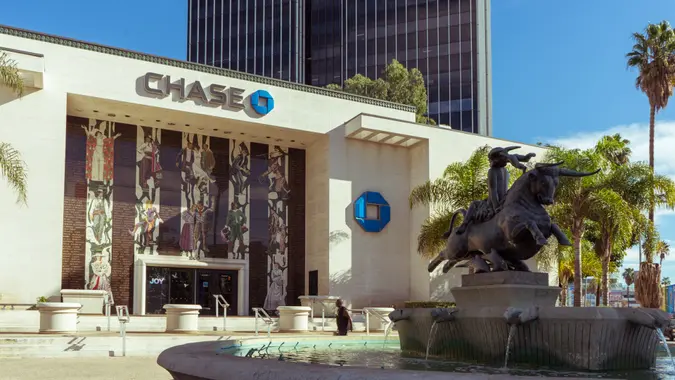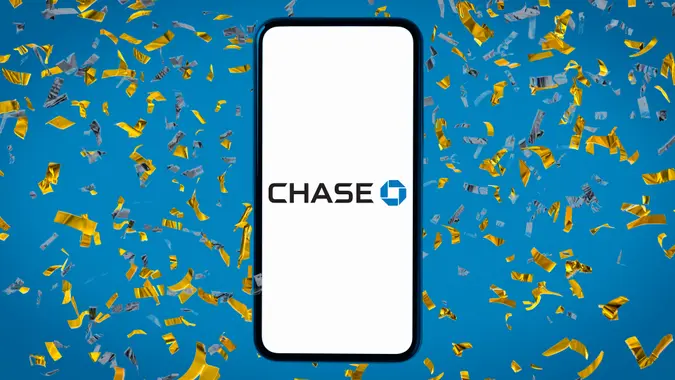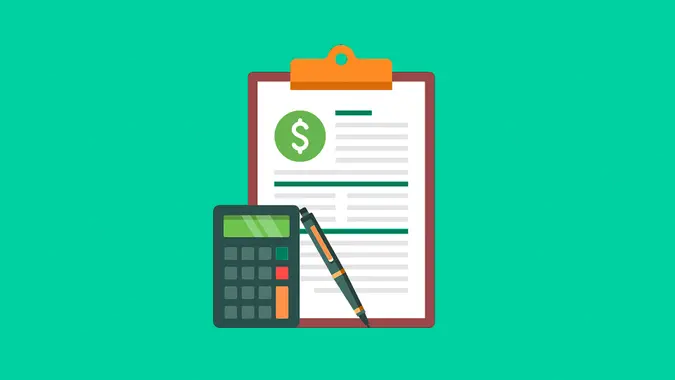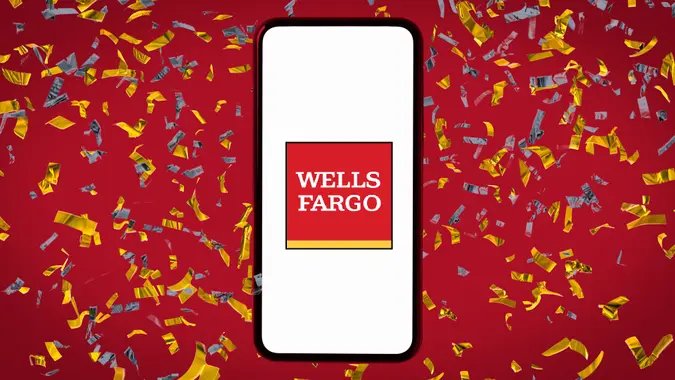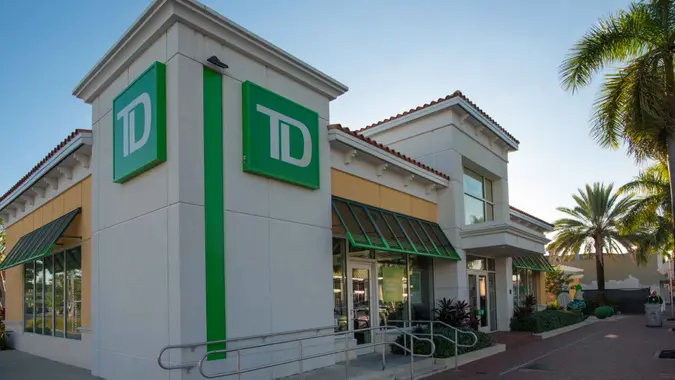How Choosing the Wrong Bank Hurts You Financially

Commitment to Our Readers
GOBankingRates' editorial team is committed to bringing you unbiased reviews and information. We use data-driven methodologies to evaluate financial products and services - our reviews and ratings are not influenced by advertisers. You can read more about our editorial guidelines and our products and services review methodology.

20 Years
Helping You Live Richer

Reviewed
by Experts

Trusted by
Millions of Readers
If you follow the advice of most mainstream money pros, then you’ve started the new year by taking a second look at your current bank and making sure that you couldn’t do better elsewhere. If it turns out that you’re in the market for a new place to park your money, here’s what you need to know to avoid squandering cash, missing out on gains and converting your hard-earned money into fuel for some bank CEO’s private jet.
Bad Banks Pay You Less Than Your Deposits Are Worth
If the rate of inflation is the yardstick for “high-yield,” then there’s no such thing as a high-yield savings account in the modern era. Even so, there are lousy yields and there are really lousy yields.
According to the FDIC, the national average APY for a savings account is 0.06%, but it can go as low as 0.01%. Presuming a balance of $5,000 compounded for one year, the difference between 0.01% interest and 1% interest is the difference between 50 cents and 50 bucks. Yes, rates are painfully low, but don’t get lulled into a “they all stink, so what does it matter” mentality.
It matters a lot. Shop around.
Rates Aren’t Everything — Fees Can Quickly Swallow Yields
While rates are important because of the snowball effect of compound interest, you’re usually talking about a difference of a few bucks per year. A single fee can wipe that out — and with some banks, a laundry list of charges is all part of the package.
“If you’re getting hit with minimum balance fees, service fees or overdraft fees on a regular basis, it might be time to change banks,” said Carter Seuthe, CEO of Credit Summit.
Keep in mind that in some cases, fees are triggered by mistakes on your end, so when bank-shopping, know thyself.
“If you’re prone to overdrafting, make sure you choose a bank that doesn’t charge you a fee for doing so,” said Stephan Baldwin, founder of Assisted Living Center. “While it may not be common knowledge, some financial entities have completely removed or lowered their overdraft fees.”
But don’t pay the bank to save you from yourself unless you need saving.
“In the same vein, if you’re not prone to overdrafting, make sure you remove the protection options as it usually has a monthly charge,” Baldwin said.
With Some Banks, the Sales Pitches Never End
If your bank offers savings and checking accounts, it probably issues credit cards, sells insurance and offers home and auto loans. Signing up for one shouldn’t force you to endure perpetual shilling for the rest.
“Oftentimes they attempt to sell you credit cards that you don’t need, and in doing so, more often hurt you than help you,” said Blaine Thiederman, CFP and founder of Progress Wealth Management.
Even if you’re in the market for a card — or a loan or whatever else it is your bank might offer — keep in mind that you very likely might do better elsewhere. Here, too, the solution is to do your homework, shop around and remain skeptical.
“When you work with anyone to help you improve your finances, you should ask yourself: Are they on your side or do they see you as a prospect?” Thiederman said. “If they see you as a prospect to sell to, they shouldn’t be trusted.
“In any circumstance, when dealing with your finances, always remember ‘trust but verify.’ If the individual or company you’re working with consistently tells you accurate, thoughtful and well-intentioned recommendations, you know you can trust them. If they tell you that you need seven bank accounts, all of which have a maintenance fee, you probably shouldn’t.”
Bad Customer Service Isn’t Just Annoying — It Can Cost You
According to the Best Banks of 2022 study from GOBankingRates, fewer than 7% of people rank customer service as their top priority when shopping for banks, the lowest percentage of any category by far.
The 7% might be onto something.
Although customer service is only indirectly related to your finances, it’s related just the same, and by picking a bare-bones bank that scrimps on service to boost rates, you might be choosing the wrong bank.
“It can also mean poor customer service so you can’t get your requests fulfilled, which can sometimes lead to charges and fees,” said Shawn Plummer, CEO of The Annuity Expert. “A poor relationship with the bank can also mean you are less likely to get fee waivers.”
Make Sure Your Bank Remains Your Bank
Mergers and acquisitions are such a normal part of the financial industry that your mortgage — or even your entire bank — can change hands without you even hearing about it until after it happens, and that can spell bad news.
“You can be hurt financially by choosing the wrong bank if your bank merges with another financial institution and that causes drastic changes, such as the addition of hidden fees, increases in charges and fees, and higher interest rates on credit lines,” said Karen Condor, a finance expert with USInsuranceAgents.com. “Also, if a smaller community bank merges with a large bank, it often reduces the types and availability of credit lines, especially to small businesses.”
As Always, Read the Fine Print
Finally, some banks have policies that are perfectly legal and not necessarily deceptive but that can catch you off guard and put you in a financial pinch if you’re not aware of them.
“Choosing the wrong bank can hurt you financially when they take money from your checking account when you’ve intentionally needed to skip a payment that month,” said Christine A. Kingston of Surf City Lawyers. “Credit unions are notorious for taking money from your checking account to pay a credit card you have with that bank. They do it automatically under the guise of trying to help you because you forgot. They will also hold your credit card debt hostage under a cross-collateralization clause in a contract, but the only time it’s enforceable is when you take both an auto loan and credit card at the same time.”
More From GOBankingRates
 Written by
Written by  Edited by
Edited by 



